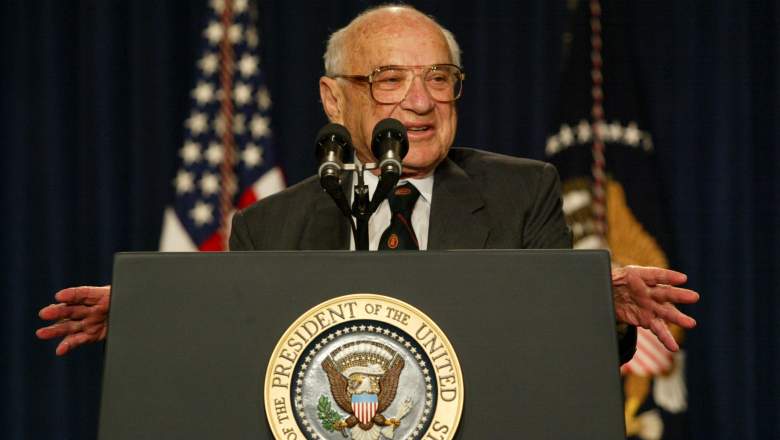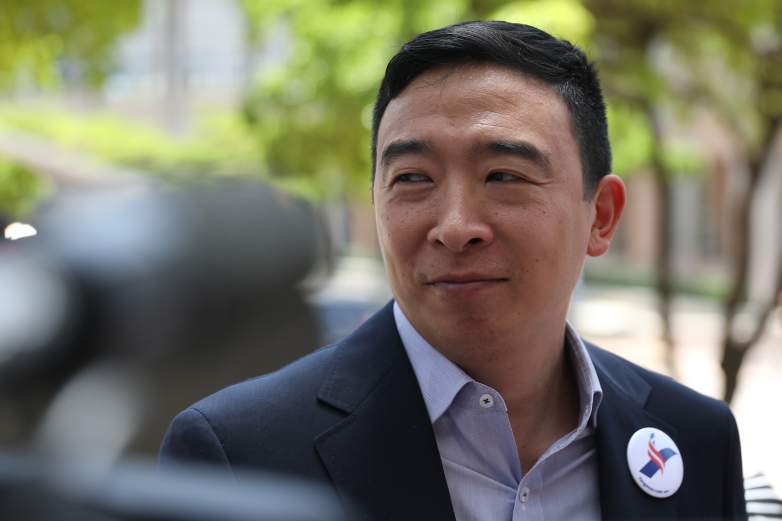
2020 Presidential candidate Andrew Yang will take the stage tonight for a chance to officially solidify himself as an outside threat in the 2020 Democratic primary.
Yang’s main policy proposal is to provide every American citizen who wants it a Universal Basic Income (UBI) of $1,000 dollars a month. He calls the proposal the Freedom Dividend.
“Andrew would implement a Universal Basic Income, ‘the Freedom Dividend,’ of $1,000/month, $12,000 a year for every American adult over the age of 18,” Yang’s campaign website reads.
When asked about the legitimacy of UBI, Yang points to major political and economic figures in American history who were advocates of Universal Basic Income. Some of those figures include Martin Luther King Jr. and Thomas Paine. Yang even points to the state of Alaska as a success story of basic income.
Another major American figure Yang points to as a supporter of UBI is conservative and libertarian economist Milton Friedman.
Writer and video producer Matt Orfalea put together several reasons why Friedman was such an advocate of UBI.
Friedman Thought UBI Gave People More Freedom
Although Milton Friedan was a staunch economic conservative to despised big government and social programs, he thought a minimum income gave citizens the freedom to choose where they spent their money, rather than allowing several government-controlled welfare programs to make that choice for the individual.
“I agree that as a moral principle those of us who are paying taxes to provide subsidies for others have every moral right to say what it shall be used for.” Friedman said in an interview. “If we want to say we’ll give you money only if you use it to buy toothpaste and not for anything else, that’s our right but I think we are very unwise to exercise it.”
“I think we would be wiser, and more truly charitable, and do both them and ourselves more good, to tell them to use it to buy what they will,” Friedman added. “The fundamental idea is that people should be free to choose.”
Friedman Wanted to Cut-out Government Interference in People’s Lives

Getty Andrew Yang
Friedman argued that there was too much government interference when it came to welfare. He wanted to consolidate all of the country’s social programs and produce a basic income.
“We have too many separate individual programs,” Friedman said.
According to Orfalea, the United States has 126 government welfare programs, and Friedman wanted to replace them with a basic income.
“Now what it seems to me you aught to do is to give people money instead of a whole lot of separate little baffles and get rid of the bureaucracy that is involved in all these programs,” Friedman said.
Friedman Thought UBI Would Enable Work & Increase Equality
One of Friedman’s main principles in favor of a basic income was the fact that the welfare system at the time punishes people for working. If someone receives employment and begins getting paid while on welfare, they will eventually lose their benefits.
“You could have a program that would be far superior to the present structure in that it would help people who are poor because they are poor. It would help them in a way which would retain an incentive for them to work,” Friedman said. “Maybe a job comes up that looks better than welfare but they’re afraid to take it because if they lose it after a few months, it may be six month or nine months before they can get back onto welfare.”
Friedman also thought UBI would increase levels of equality since everyone, no matter the race, class or religion of an individual would receive a guaranteed income.
“It’s a system which would have the effect of eliminating the separation of a society into those who receive and those who pay, a separation that tends to destroy the whole social fabric,” Friedman said.
To put it simply, there would not be a stigma against certain groups of people receiving this benefit if everyone were able to obtain it.
Friedman Isn’t the Only Conservative Who Is in Favor of UBI
Friedman wasn’t and isn’t the only conservative who thinks that a guaranteed income is a good idea, according to The Atlantic. Other proponents of the measure were former president Richard Nixon and modern conservative intellectual, Charles Murray.
Nixon tried but failed to pass a Universal Basic Income during his presidency, and Murray wanted to scrap all welfare programs including Social Security and Medicare in order to implement an annual $10,000 cash grant to everyone 21 years and older, per The Atlantic.